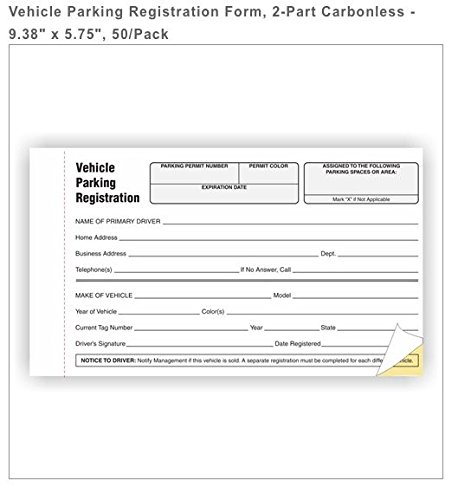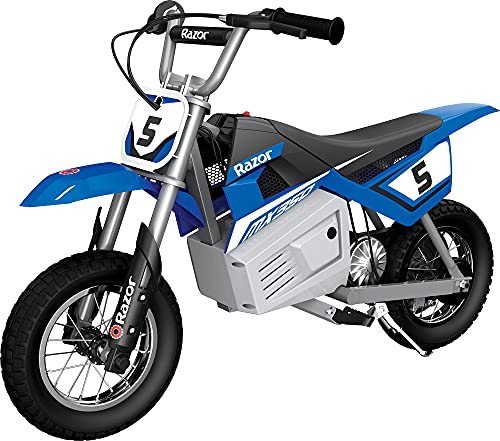As an Amazon Associate I earn from qualifying purchases.
Hey there! Are you curious about whether electric dirt bikes need to be registered? Well, you’ve come to the right place! In this blog post, we’re going to dive into whether or not electric dirt bikes are subject to registration. We understand that knowing the rules and regulations can be a bit overwhelming, so we’ve got you covered. By the end of this post, you’ll have all the information you need to make an informed decision. So let’s get started and find out if your electric dirt bike needs to hit the registration road!
Riding the Electric Wave: Explore the Bestselling Dirt Bikes That Don’t Require Registration!
What is registration and why is it important?
Registration is a process that involves officially documenting a vehicle with the appropriate government agency. It is a legal requirement for all vehicles, including dirt bikes, and serves several important purposes. In this section, we will delve into the concept of registration and discuss why it is crucial for dirt bike owners to comply with this requirement.
1. Legally Identifying Your Dirt Bike
– Proper identification: Registering your dirt bike provides it with a unique identification number or license plate, making it easier to track and identify in case of theft or other legal matters.
– Proof of ownership: Registration documents serve as proof of ownership, ensuring that you are recognized as the rightful owner of the dirt bike.
– Resolving disputes: If any disputes or conflicts arise regarding the ownership or use of the dirt bike, having it registered can provide legal protection and support your claim.
2. Ensuring Safety and Compliance
– Safety standards: Registration requires that your dirt bike meets certain safety standards set by the government. These standards help ensure that your vehicle is safe to operate, minimizing the risk of accidents or injuries.
– Compliance with regulations: By registering your dirt bike, you demonstrate compliance with various regulations, such as emission standards and noise limits. This helps protect the environment and maintain a peaceful coexistence with the community.
– Liability coverage: Many registration processes include insurance requirements, ensuring that you have liability coverage in case of accidents or damages caused by your dirt bike. This coverage is essential for protecting yourself and others financially.
3. Access to Public Roads and Trails
– Legal operation: Registering your dirt bike allows you to legally operate it on public roads and trails. Without registration, you may be restricted to private property, limiting your riding opportunities.
– Exploring new areas: Some areas or trails may require registered vehicles for access. By registering your dirt bike, you open up opportunities to explore new locations and enjoy a wider range of riding experiences.
– Avoiding penalties: Operating an unregistered dirt bike on public roads or trails can lead to fines, confiscation of your vehicle, or other legal consequences. Registering your dirt bike helps you avoid these penalties and enjoy worry-free riding.
Registration requirements for electric dirt bikes
Electric dirt bikes have become increasingly popular for off-road enthusiasts, offering a quieter and more eco-friendly alternative to their gas-powered counterparts. However, like any motor vehicle, electric dirt bikes must be registered and meet certain requirements before hitting the trails legally. In this article, we will delve into the specific requirements for registering electric dirt bikes, exploring the laws and regulations that govern this process.
Age Restrictions
One of the first considerations when registering an electric dirt bike is the age of the rider. Different jurisdictions have varying age restrictions for operating off-road vehicles. For example:
- In California, riders must be at least 8 years old to operate an electric dirt bike with a motor size of 750 watts or less. Those between 8 and 12 years old must be supervised by an adult.
- In Florida, riders must be at least 16 years old to operate an electric dirt bike on public lands or any area open to the public, unless they are accompanied by a parent or guardian.
It is essential to check the specific age restrictions in your area before allowing a minor to ride an electric dirt bike.
Licensing Requirements
While electric dirt bikes are primarily used off-road, some states may still require riders to have a valid driver’s license or an off-road vehicle (ORV) permit. These requirements can vary, so it’s crucial to consult your state’s Department of Motor Vehicles (DMV) or equivalent agency for accurate information.
Here are a few examples of licensing requirements for electric dirt bikes:
- In Arizona, riders must possess a valid driver’s license or an ORV decal to legally operate an electric dirt bike on public land.
- In New York, riders aged 16 and older need an ORV registration from the Department of Motor Vehicles (DMV) to ride an electric dirt bike on public trails.
Necessary Documents
To register an electric dirt bike, you will typically need to provide specific documents. These can include:
- Proof of ownership: This can be a manufacturer’s statement of origin (MSO), a bill of sale, or a previous registration document.
- Proof of identification: A valid driver’s license or identification card is usually required to establish your identity.
- Proof of insurance: Some states may require liability insurance for electric dirt bikes. Check with your local DMV to determine if this is necessary in your area.
- Application forms: Most states have specific forms for registering off-road vehicles. These forms can usually be found on your state’s DMV website.
Remember to gather all the necessary documents before heading to the DMV to ensure a smooth registration process.
Exemptions and exceptions
When it comes to registering electric dirt bikes, not all of them are subject to the same rules and regulations. In this section, we will explore the exemptions and exceptions that may exist for certain types of electric dirt bikes. We will also discuss alternative options that riders can consider. Let’s dive in!
Off-Road Only Models
Many electric dirt bikes are designed specifically for off-road use and are not intended to be ridden on public roads. These off-road only models often fall under exemptions and are not required to be registered. They are typically equipped with features that make them suitable only for off-road adventures, such as knobby tires, rugged suspension systems, and powerful motors.
Some popular examples of off-road only electric dirt bikes include:
- KTM Freeride E-XC: This electric dirt bike is built for off-road enthusiasts, offering a lightweight and agile ride with an electric motor that delivers instant torque.
- Segway X260: Designed for all-terrain exploration, this electric dirt bike boasts a sturdy frame, long battery life, and excellent maneuverability.
Low-Speed Electric Bikes
In certain jurisdictions, there may be exemptions for low-speed electric bikes that have a maximum speed limit below a certain threshold. These bikes are often classified as electric bicycles and are not required to be registered as motor vehicles. To qualify for this exemption, the electric dirt bike must adhere to specific criteria, such as having pedals for propulsion, limited motor power, and a maximum speed of 20 mph (32 km/h) or lower.
Here are a few examples of low-speed electric bikes:
- Sur-Ron Light Bee X: This electric dirt bike combines pedal power with an electric motor, allowing riders to enjoy the thrill of off-road adventures while staying within the low-speed classification.
- Cake Kalk OR: With its pedal-assist feature and a top speed of 45 mph (72 km/h), this electric dirt bike falls into the low-speed category in some jurisdictions.
Youth-Sized Electric Dirt Bikes
In many places, there are exemptions for youth-sized electric dirt bikes that are specifically designed for children. These bikes often have lower power outputs and reduced maximum speeds to ensure the safety of young riders. As a result, they may be exempt from registration requirements.
Some youth-sized electric dirt bike models include:
- Razor MX350: This electric dirt bike is perfect for young riders, offering a scaled-down design, a maximum speed of 14 mph (22.5 km/h), and a quiet electric motor.
- Burromax TT250: Designed with safety in mind, this youth electric dirt bike features parental controls, a top speed of 14 mph (22.5 km/h), and adjustable speed settings.
Alternative Options
If your electric dirt bike doesn’t fall under any exemptions or exceptions, there are still alternative options to consider. One such option is to register your electric dirt bike as a regular motor vehicle, which may require meeting specific requirements such as adding turn signals, mirrors, and other safety features.
Another alternative is to look for electric dirt bikes that meet the necessary requirements for registration. Some manufacturers offer models that are specifically designed to meet road-legal standards, allowing riders to enjoy both off-road and on-road adventures without any registration hurdles.
Considerations and recommendations
As you weigh the decision of whether to register your electric dirt bike, there are several important factors to consider. We have compiled a comprehensive list of considerations to help you make an informed choice. Based on these considerations, we will then offer our recommendation on whether it is advisable to register your electric dirt bike or explore other options.
1. Local Regulations and Laws
- Research the regulations and laws specific to your area regarding electric dirt bike registration.
- Check if electric dirt bikes are classified as motor vehicles and if they require registration.
- Find out if there are any restrictions on where you can ride an unregistered electric dirt bike.
2. Usage and Intended Purpose
- Determine how and where you plan to use your electric dirt bike.
- Consider if you will primarily ride off-road on private property or if you intend to ride on public roads.
- Evaluate the potential benefits of registering your electric dirt bike based on your specific usage and intended purpose.
3. Safety Considerations
- Assess the safety features and capabilities of your electric dirt bike.
- Consider if registration would provide additional safety benefits, such as access to safety training programs or insurance coverage.
- Balance the safety advantages with the potential risks associated with riding an unregistered electric dirt bike.
4. Long-Term Cost Analysis
- Evaluate the cost of registering your electric dirt bike, including any associated fees or taxes.
- Compare the registration costs to the potential benefits gained from registration, such as increased legal protection or access to public roads.
- Consider the long-term financial implications of registering versus not registering your electric dirt bike.
5. Future Resale Value
- Determine if the resale value of your electric dirt bike would be significantly affected by its registration status.
- Research the market trends and preferences regarding registered versus unregistered electric dirt bikes.
- Factor in the potential impact on resale value when making your decision.
Our Recommendation
After considering these factors, we recommend carefully assessing your specific circumstances and weighing the benefits and drawbacks of registering your electric dirt bike. If you primarily ride off-road on private property and do not foresee a need to ride on public roads, registering your electric dirt bike may not be necessary. However, if you plan to ride on public roads or anticipate potential safety or legal concerns, registering your electric dirt bike would provide you with added peace of mind and legal protection.
Ultimately, the decision to register your electric dirt bike depends on your individual needs and priorities. It’s important to conduct thorough research, consult local authorities if needed, and make an informed choice that aligns with your usage and goals.
Remember, safety should always be a top priority, regardless of whether your electric dirt bike is registered or not. Happy riding!
Wrapping it up: Everything you need to know about registering electric dirt bikes
In conclusion, this blog post has answered the question of whether electric dirt bikes need to be registered. We have provided all the necessary information regarding registration requirements, exemptions, and recommendations. Now, armed with this knowledge, you can confidently make a well-informed decision about registering your electric dirt bike. Happy riding!
Amazon and the Amazon logo are trademarks of Amazon.com, Inc, or its affiliates.









